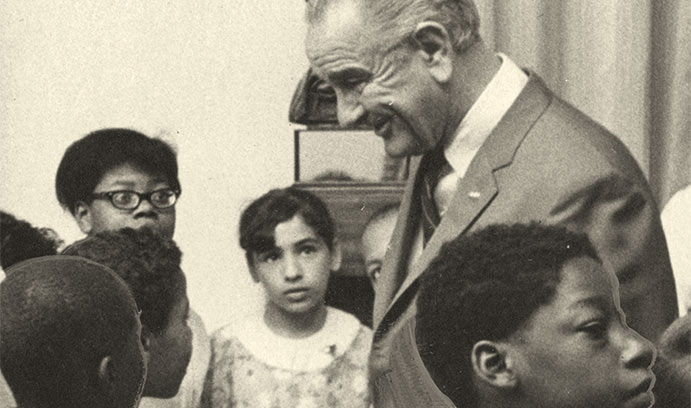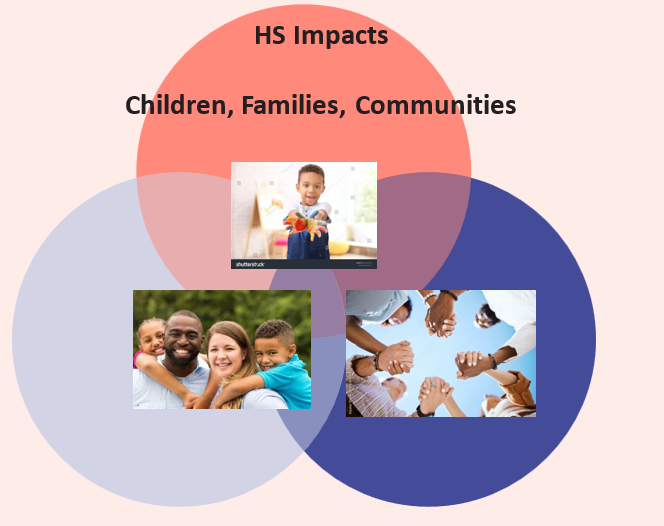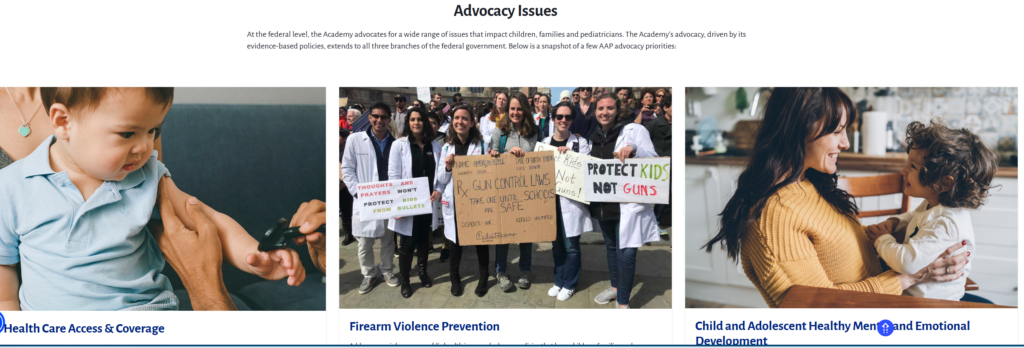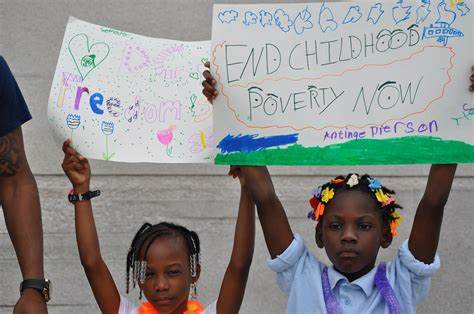Effective Advocacy for Head Start
Head Start has long stood as a beacon of opportunity for children and families, particularly those in underserved communities. Since its inception during the Civil Rights Era and the War on Poverty, it has offered essential early childhood education, healthcare, nutrition, and parent involvement aimed at breaking the cycle of poverty. However, in recent years, Head Start has come under significant attack, threatening its existence and the future of the families it supports. Now is the time to reignite advocacy efforts and build a united front to defend and expand this vital program.
This blog post will explore the ongoing threats Head Start faces, the steps already being taken to combat these challenges, one example of effective Head Start advocacy, and additional actions required to ensure its survival and success.

The Attack on Head Start
Head Start is currently under siege, with the sitting President employing the powers of a newly created Department of Government Efficiency to halt funding for critical programs, including Head Start. Compounding the issue, the Department of Health and Human Services has paused operations under the direction of Robert Kennedy Jr., creating significant uncertainty and operational gridlock.
Many see this as a direct attack on programs like Head Start, and advocates agree we must take action that matches the fervor and determination of Head Start’s early years. This calls for a renewed sense of urgency, reminiscent of the days when grassroots efforts, political alliances, and get-out-the-vote campaigns played a pivotal role in shaping policy..

What Is Being Done?
The National Head Start Association (NHSA) provides valuable advocacy tools such as posters, recordings, legislative support lists, and sign-on letters. While helpful, these resources alone are not enough to address the significant challenges currently facing Head Start programs.
Unfortunately, much of the recent public discourse on Head Start, such as LinkedIn, has headlines that center on low-income families losing their childcare, a narrow focus on childcare alone. While the loss of childcare for low-income families is a critical issue, it is vital to underscore the broader impact of Head Start. The loss of these programs represents more than just childcare, threatens early childhood development at a critical stage in children’s lives, exacerbates staff turnover, and disrupts the foundation of educational and social progress that Head Start provides.
Beyond directly serving families and children, Head Start has historically played a pivotal role in shaping state-funded pre-kindergarten and childcare initiatives. Furthermore, Head Start has significant economic impacts on local communities. The immediate loss of Head Start funding results in job losses, reduces income in local economies, and disrupts key contracts with sectors such as banking, insurance, and food services.
Advocacy within the Head Start community has often centered on the childcare needs of low-income families. While this remains an important issue, our advocacy must broaden its scope. We need to address the holistic benefits of Head Start, including its role in fostering early development, supporting educational systems, and contributing to community stability. By demonstrating how Head Start impacts entire ecosystems—not just the children it serves directly—we can strengthen the case for its continued support.
The NHSA is currently backing critical legislation like HR 336 (Headway Action) and S 273 (Small Business Childcare Investment Act), while also monitoring bills such as HR 728 and HR 1408, which propose amendments to the Head Start Act and IRS codes respectively. However, to secure a sustainable future for Head Start, our advocacy must expand to address issues impacting the whole child, their families, and community. Building coalitions and emphasizing the comprehensive value of Head Start is essential, now more than ever.

The National Head Start Association (NHSA) has laid the groundwork by providing advocacy tools, including posters, recordings, a list of supported and pending legislation, and sign-on letters. Each state Head Start Association has an advocacy page on their website. While these resources are useful, they fall short of the spirited response needed to counteract the current threats.
Effective Head Start Advocacy: The Policy Council in 2007
One powerful example of an effective advocacy group is F.O.C.U.S., which demonstrated its impact during the 2007 Reauthorization of Head Start. Partnering with Orange County (FL) Head Start, F.O.C.U.S. organized a strategic campaign to safeguard the Head Start Policy Council. This initiative included in-depth research on the Policy Council’s history and benefits, coupled with training sessions for families and parents on how to effectively advocate to policymakers.
Training sessions included discussions of how legislation is passed along with practicing personal statements. Through parent leadership development, engaging town halls with legislators, and presenting research-backed arguments, the group succeeded in persuading Representative Ric Keller to change his stance and support the Policy Council. This achievement underscores the effectiveness of engaged and passionate participants, well-researched advocacy, community involvement, and tactical engagement with decision-makers.

More Is Needed
Strengthening Communication Across All Levels of Head Start
Effective advocacy starts with clear, reliable, and consistent communication. NHSA should organize monthly Zoom calls with state and regional associations to share legislative updates and effective advocacy practices. Similarly, state associations must relay this information to local directors, ensuring no one is left in the dark.
Families should also be part of the conversation. Every piece of relevant legislation must be accompanied by fact sheets that are accessible and easy to discuss. Parents and families need to understand how federal changes will impact their children.
Conferences & Meetings: Move Beyond Professional Development
Professional development is valuable, but advocacy training must take center stage moving forward. Advocacy is a skill that requires direct instruction, modeling, practice, and feedback. The NHSA and other associations must incorporate live webinars and advocacy-focused workshops into every conference. They should provide step-by-step guidance on how families and staff can articulate their stories, draft compelling testimonials, and interact with legislators effectively.
Legislative Support in Action
The National Head Start Association (NHSA) is currently championing key legislative efforts, including:
- HR 336 – Headway Action Act and S 273 – Small Business Childcare Investment Act to secure crucial funding.
- HR 728 and HR 1408, both aiming to strengthen the Head Start Act and address tax-related barriers.
While these legislative efforts are vital, Head Start’s advocacy must encompass more than just immediate policy. Amplifying broader impacts such as supporting local economies, fostering lifelong learning, and cultivating community stability is essential in building stronger public and legislative support.
Why Head Start Needs Strong Alliances
Head Start’s ongoing mission to support children and families cannot succeed in isolation. Collaborating with organizations sharing aligned values strengthens advocacy efforts and amplifies voices for broader systemic change. By forming coalitions, Head Start can address complex challenges like childhood health, literacy, public safety, and immigration to create lasting impacts for the families and communities it serves.
To strengthen advocacy efforts, the Head Start community—including the NHSA and state associations—must broaden its focus. Partnering with other organizations that share aligned goals for the welfare of children and families can enhance our reach and impact. This includes building coalitions with non-traditional allies in areas such as healthcare, literacy, and public safety. For instance, the American Academy of Pediatrics (AAP) offers a robust advocacy network and technical assistance resources that complement the Head Start mission in addressing children’s health, including immunization initiatives and gun safety measures.
Healthcare and Child Safety
Collaboration with healthcare organizations such as the American Academy of Pediatrics (AAP) enhances efforts to address critical child health issues. The AAP’s resources and advocacy network offer support in areas like immunizations and promoting children’s health. Tackling gun violence—now the leading cause of death for U.S. children—requires partnerships with groups like Everytown for Gun Safety, Moms Demand Action, and the Brady Campaign. Together, these alliances can advocate for safer environments for children and communities.

Literacy and Intellectual Freedom
Early childhood education thrives on literacy, an essential foundation for development. Aligning with literacy advocates like the American Library Association, PEN America, and the Freedom to Read Foundation reinforces Head Start’s mission to promote learning while combating censorship. These partnerships highlight the role of literacy in empowering children and building stronger educational ecosystems.

Immigration Advocacy
Many families served by Head Start are impacted by immigration policies. Partnering with organizations like the ACLU, International Rescue Committee, and United We Dream allows Head Start to address significant immigration challenges. Advocacy efforts must include combating policies that threaten the citizenship of U.S.-born children, ensuring the stability and welfare of immigrant families within the Head Start community.

Collective Action
- There’s power in numbers. Building on past successes like the Civil Rights Movement and the War on Poverty, we need to return to visible, unified demonstrations of support. A “March on Washington” with families, staff, and community partners could put pressure on policymakers to act. Imagine 40,000 advocates rallying together in support of early childhood education—that kind of action can’t be ignored.
- To make this happen, NHSA must fundraise to support family travel costs and initiate alliances with other advocacy groups. Such an event would be a historic moment for Head Start and for children, families and communities as a whole.

Advocacy Is Education
Advocacy
Advocacy goes beyond simple communication—it’s about actively educating stakeholders such as families, staff, community members, and legislators. Advocacy highlights the broader impact of Head Start programs and often focuses on systemic issues affecting early childhood education. Some key aspects of advocacy include:
- Educating stakeholders about the program’s impact: Advocacy efforts might explain how Head Start supports school readiness or showcase the economic benefits local communities gain from the program. For example, bringing local elementary school administrators together with parents to discuss how Head Start prepares children for kindergarten is a powerful advocacy initiative.
- Discussing the challenges Head Start faces: Advocacy may spotlight how uncertainty around funding disrupts programs, leads to staffing difficulties, and raises stress levels for both families and children.
- Addressing specific legislation: Advocacy can explain how proposed legislation, such as HR 336 (Headway Action) and S 273 (Small Business Childcare Investment Act), impacts the Head Start community without directly pushing for a vote.

Education
Education, as part of advocacy, involves awareness-building and enabling others to understand and discuss the value and impact of Head Start programs. This includes:
- Training parents, Board members, and policymakers about the function and value of Head Start.
- Providing data, real-world examples, and insights to empower stakeholders to make informed decisions or discussions concerning early education.
For example, education might include sharing research on how early childhood education can set the foundation for lifelong learning or demonstrating the fiscal benefits of investing in programs like Head Start.
What Advocacy is Not
It is important to note that advocacy is not lobbying. Lobbying refers to actively persuading legislators to vote for or against specific legislation. For instance, asking a legislator to vote “yes” on HR 336 qualifies as lobbying, and this activity cannot be conducted or funded using Head Start resources.
Summary
While advocacy and lobbying often occur within the same ecosystem of legislative influence, advocacy is rooted in education and engagement without directly pushing for a specific legislative outcome. Utilizing advocacy and education appropriately allows Head Start programs to build robust support systems for children and families while maintaining compliance with funding guidelines.
Building on Existing Efforts
Individualized Advocacy Efforts
While sign-on letters and templated responses are useful, they lack the impact of personal testimonials. Staff and families should be encouraged to write individual letters to their representatives, sharing their stories, hopes, and concerns for Head Start. This effort requires direct support through workshops, templates, and sample letters. Legislators need to hear from their constituents—families who depend on Head Start and advocates who see its real-world impact.
Empower Families Through Voter Engagement
An often-overlooked aspect of advocacy is voter registration and participation. Without endorsing any political party or candidate, Head Start can encourage families to register to vote and exercise their rights. Every family and community event should include voter registration drives, with follow-up text message reminders about polling dates and locations.
Access to voting strengthens democracy, and a robust turnout can have a profound impact on policies affecting Head Start. Partnering with local organizations to provide rides to polling stations would further remove barriers to participation.

Ensuring Long-Term Success
✅ For Individuals
- Share your Head Start story to highlight its impact. Personal testimonials go a long way in swaying public opinion and legislative decision-making.
- Write personalized letters to your legislators, emphasizing the program’s critical role in breaking the cycle of poverty.
- Understand legislative proposals and voting histories, and collaborate with organizations to support Head Start champions or challenge detractors.
- Attend local town hall meetings and lend your voice to advocacy efforts.
- Explore the NHSA website for resources to help you take action.
✅ For Organizations
- Communicate strategically with groups like the League of Women Voters or the American Academy of Pediatrics to share legislative priorities.
- Provide regular political updates to your members and encourage proactive advocacy across your networks.
- Organize training sessions to empower staff and families to advocate effectively for Head Start.
- Broaden advocacy efforts to address issues impacting the whole child and family, such as healthcare, literacy, and public safety.

We understand that advocacy skills and strategies are learned, not innate. Head Start directors and advocates can benefit from tailored training or research consultations. Whether you’re looking to refine your advocacy, collaborate with legislators, or expand your organization’s reach, we’re here to help.
- Request a Free Training Consultation by reaching out to Sunshine Nonprofit Solutions.
- Email me directly for conversations and sharing of ideas
- Stay Updated with advocacy tips, legislative alerts, and upcoming events by subscribing to our blog
Together, we can reignite the passion and determination that built Head Start into the remarkable program it is today. By taking action, expanding advocacy efforts, and building coalitions, we ensure that Head Start continues to serve, inspire, and uplift children, families, and communities for generations to come.
Dr. Cathleen Armstead brings over 25 years of experience in nonprofit organizations and Head Start programs, with a strong academic foundation in family services and early childhood development. A passionate advocate for social and economic justice, she has excelled in leadership roles, including serving as a director for various Head Start organizations. With an impressive 88% success rate in grant writing and a 100% success rate with DRS grant proposals, Dr. Armstead has earned recognition as a skilled strategist and grant writer. She founded Sunshine Nonprofit Solutions to provide nonprofits with tailored support, encompassing grant funding, strategic planning, leadership development, and board training.
A seasoned speaker and trainer, she presents regularly at Region IV conferences and has contributed to academia as a grant evaluator at the University of Miami’s School of Education. Currently, she is working on a nonprofit leadership guide, continuing her mission to empower organizations and foster positive change.
